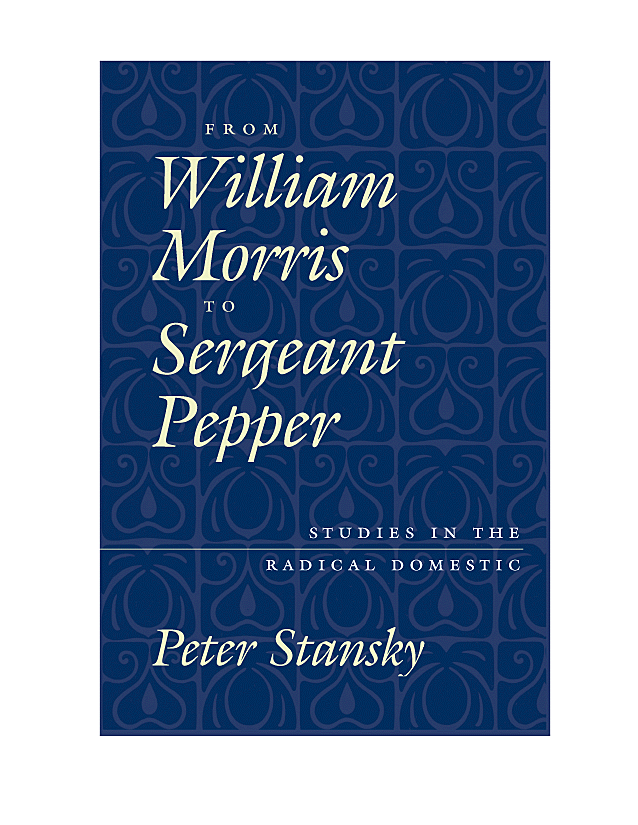
![]()
In this outstanding book, Peter Stansky puts forward a particular view of Britain and its past. What has continually fascinated him about that intriguing country—a source of both admiration and irritation—is the way in which it copes with change. Although as prone to violence and disruption as almost any other developed country, it yet likes to think of itself as calm and peaceful. There is a curious combination of the power of institutions and of group thinking as well as a true celebration of individualism and a deep admiration for eccentricity. There is a valid claim to be the world’s oldest democracy and—although perhaps now under more threat than previously—the world’s most successful monarchy. Adaptation and preservation are the name of the game.
Peter Stansky writes with wit and perception about areas of British life that he has made his own. His approach is frequently biographical, and in the first group of essays (ranging from the latter part of the nineteenth century to post World War I) he has wise words to say about the relationship between biography and history. He considers a number of distinguished critics of Britain who characteristically operate from within the system they are so eager to change.
In the second section of the book, he writes about William Morris, the great designer, socialist, poet, and novelist. In the third section, as a distinguished scholar of Bloomsbury, he provides a series of pieces on various members of the Bloomsbury Group—both admired and reviled as consummate insiders/outsiders. He goes on in the fourth section to consider critics of British society from the left (W.H. Auden, Christopher Isherwood, Stephen Spender), from the right (Nancy Astor, Evelyn Waugh, Oswald Mosley, Unity Mitford), and from the center (Isaiah Berlin). The fifth section of the book is devoted to George Orwell, that "lower-upper-middle class" individual who so loved and hated his native land, "a family with the wrong members in control." The sixth section of the book explores the position of Jews in modern Britain, with their interests in maintaining their identity and yet in being absorbed into British society.
Finally in a bravura conclusion, summing up the themes of the entire book, Stansky discusses the historical significance of the Beatles’ great recording, Sergeant Pepper’s Lonely Hearts Club Band.
Peter Stansky is the Frances and Charles Field Professor of Modern British History at Stanford University and the author of numerous works in this field.
368 pages. Cloth and paperback. 1999.
Cloth ISBN 0-930664-19-1
Paperback ISBN 0-930664-20-5